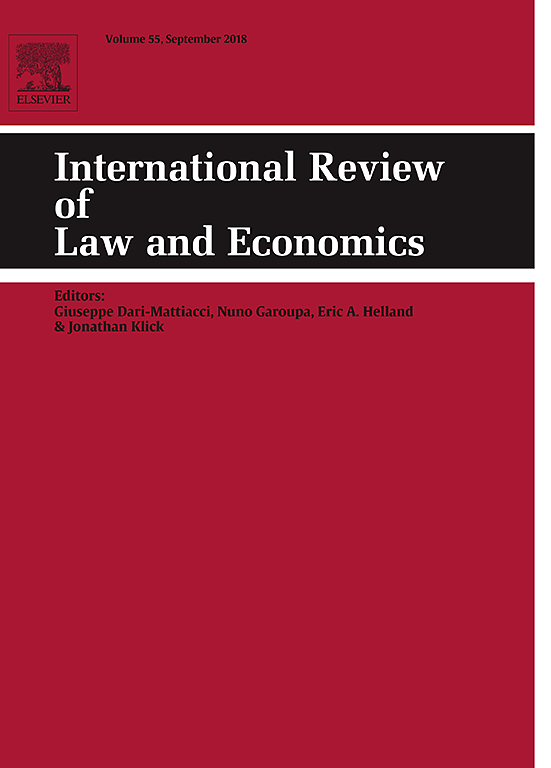First impressions are more important than early intervention: Qualifying broken windows theory in the lab
joint work by Christoph Engel, Martin Beckenkamp, Andreas Glöckner, Bernd Irlenbusch, Heike Hennig-Schmidt, Sebastian Kube, Michael Kurschilgen, Alexander Morell, Andreas Nicklisch, Hans-Theo Normann, Emanuel Towfigh
International Review of Law and Economics (IRLE) 37 (2014), pp. 126-136
Elsevier Article Page | download here
Abstract | Broken windows: the metaphor has changed New York and Los Angeles. Yet it is far from undisputed whether the broken windows policy was causal for reducing crime. The scope of the theory is not confined to crime. The theory claims that crime is inextricably linked to social order more generally. In a series of lab experiments we put two components of this more general theory to the test. We show that first impressions and early punishment of antisocial behaviour are independently and jointly causal for cooperativeness. The effect of good first impressions and of early vigilance cannot be explained with, but adds to, participants’ initial level of benevolence. Mere impression management is not strong enough to maintain cooperation. Cooperation stabilizes if good first impressions are combined with some risk of sanctions. Yet if we control for first impressions, early vigilance only has a small effect. The effect vanishes over time.
(An earlier draft of this paper can be found on SSRN.)
